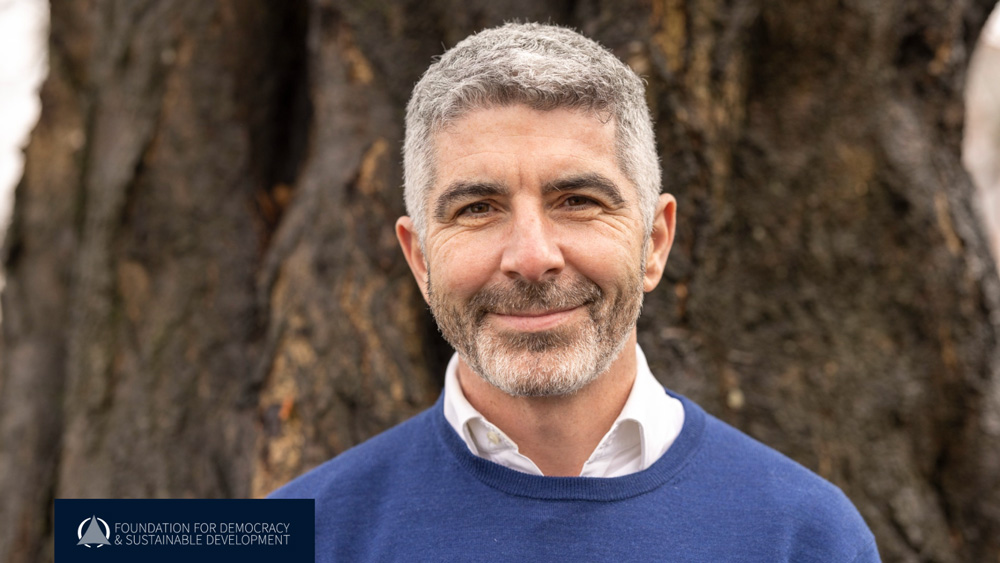In response to the provocations by Peter Davies and Sándor Fülöp at the FDSD event ‘A Future Generations Commissioner for the UK‘, Andrea Westall argues that we need to think beyond institutions in isolation. While Commissioners may have an important role to play, we need to be creative in developing governance structures that promote long-term thinking at all levels.

CC.0 David McEachan / Pexels.com
Where are we now?
On April 11th, we had no idea that an election announcement was imminent. In fact, it seemed likely that it would be another three years before the next election – the perfect time to start developing and gaining wider interest and political take-up for new ideas. Instead, we have begun yet another political cycle which pushes that possibility further back and requires, at least in the short term, thinking in different ways.
The Queen’s Speech on 21st June made it very clear that most of this parliament will be taken up by Brexit negotiations. And since our governments tend to be driven by manifesto policies, it is very unlikely that anything new and radical will or could be considered.
There is, however, an extremely positive aspect to the current political turmoil. Old truisms or ‘common sense’ (particularly economic) are being questioned. Radical thinking is relatively easier and not simply associated with any particular party. This means that we can also think more fundamentally about how we embed sustainable development and future generations within our policy and democracy.
In addition to the examples of the Hungarian Ombudsman or the Welsh Commissioner for Future Generations discussed by Sándor Fülöp and Peter Davies respectively, we can also look at other examples of good practice around the world, many of which are summarised on FDSD’s website. There are alternative models (or perhaps complementary structures) which are more embedded in the parliamentary process. For example, The Committee for the Future in the Finnish parliament is made up of 17 parliamentarians from all political parties. They comment on government policies and conduct research on future issues including participatory methods such as hearings, or crowd sourcing. Its outputs are generally considered by the Finnish assembly. However, they have no legislative function.
Other approaches build on elements of the checks and balances of government such as audit. The Commissioner of the Environment and Sustainable Development in Canada gives parliamentarians “objective, independent analysis and recommendations on the federal government’s efforts to protect the environment and foster sustainable development.” The commissioner, part of the Auditor General’s office, conducts performance audits, monitors federal department sustainable development strategies and monitors environmental petitions.
But any institution in isolation is not enough. It can easily be removed when parties and politics change. The principles of considering the longer term and future generations need to permeate throughout the political process.
Both the Hungarian and Welsh examples flow directly from the countries’ constitution (Hungary) or constitutional legislation (Wales). In Hungary, the constitution says: “We bear responsibility for our descendants; therefore we shall protect the living conditions of future generations by making prudent use of our material, intellectual and natural resources.” In Wales, the devolved nation’s founding legislation includes sustainable development as one of its core principles.
The UK as a whole does not have this foundational or constitutional underpinning. It is worth considering that, post-Brexit, arguments for a constitution might gain renewed vigour. There is now an opportunity to think carefully about its scope, and incorporate sustainable development and future generations. Similar opportunities could arise if a (more controversial) Bill of Rights or amendments to the Human Rights Act are considered with the potential to incorporate the collective rights of future generations as a legal principle.
In addition to constitutional change, we could even consider the potential of a fourth ‘power’ or a revised second chamber to represent the interest of future generations.
But the problem with focusing on Whitehall alone is that it reinforces a top-down political and governance model. In a complex world we need many and varied forms of accountability, participation and governance at all levels of society.
With devolution there are opportunities within the remits and practice of mayors and devolved authorities.
But should we also be thinking more about wider ‘sustainability governance’ than just altering the architecture of central or local government? This raises questions about what that means for the role of government. In practice, local governments are already considering their power and scope to convene and broker activity, which could both encourage and ground more long termism across sectors and enable joint problem solving.
For example, Public Service Boards in Wales could go beyond just supporting long termism in public services to providing the catalyst to engage different sectors and the public in developing local economies and societies. And what is the role of other bodies such as trade associations in any long-term transformational change?
While there are many practical ideas around, we also need to pay attention to any barriers which prevent them succeeding. Several recent commissions and reports such as the Oxford Martin School’s Now for the Long Term have addressed our tendency to short termism and proposed solutions. We also need to look at other perhaps less scrutinised blockages such as the Treasury’s Green Book which imposes certain criteria on policy choices, arguably those which prefer the short term and narrow economic measures.
It is also important to think carefully about language and framing. Different narratives appeal to different people. Post-Brexit we all need to listen to and consider other perspectives.
In Hungary, the Ombudsman for Future Generations, although weakened in its scope and powers, survived a change of government to one with a more nationalist focus partly because this way of thinking fits with a long-term vision of the nation.
We might also want to think about starting from a different entry point such as more widely accepted areas of concern such as health, or creating a more inclusive and resilient economy, or a viable industrial strategy.
It’s also worth thinking about continuity. It was striking that some years ago, when England’s forests were threatened with privatisation by the government, there was a strong rejection by the public. That seemed a step too far – tampering with the essence of our common heritage and collective history. Using the language of stewardship or passing on (and improving) what we inherit, is another way of speaking and engaging with sustainable development or meeting the needs of future generations. It brings in place, and focuses on ‘we’ – providing a collective sense of ownership and common cause – something perhaps the UK needs above all else.
Download
The paper is available for download in pdf.



